Hiking is an amazing way to get out in nature and truly experience a place. We are big believers of hiking whenever we travel to a new place, so we can experience the nature and wildlife of that country. When we are out in nature, we want to respect it, look after and leave it in its natural state so many others can enjoy it after us.
To do this, we need to put into practice a few key steps to become environmentally friendly hikers. We also want to ensure the people who are hiking at the same time as us are given every opportunity to enjoy the natural wonders around them. By taking both the environment and people into consideration when we hike, we become eco-conscious hikers! Here's our starting points to look after nature and people when you hike.
Be sure to check out our Instagram to see more of our amazing hiking adventures!
Keep The Environment Peaceful For Everyone
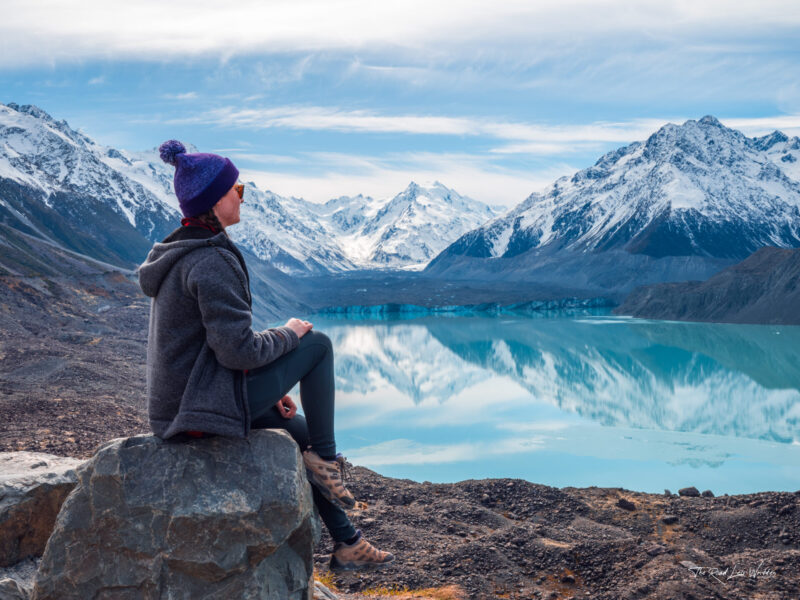
We are looking at you; person who likes to carry their speaker with them blasting their crappy music so no one else can enjoy the sound of the birds, and instead, has to listen to your dumb playlist. We will never understand the need for music when hiking in nature.
That doesn't mean you can't have your own tunes going if that's what you like, though! Just use this neat little device that stops others from hearing the music and gives you your own private party. They are called headphones people, please use them!
Same goes for when you are having a conversation on the phone. I mean, the fact some people get a signal high up on a mountain is impressive, but we'd appreciate it if you didn't rub that in our face by FaceTiming on speaker with your relatives back home. PUT IN THOSE EARPHONES PLEASE!!
Let's Be Friends
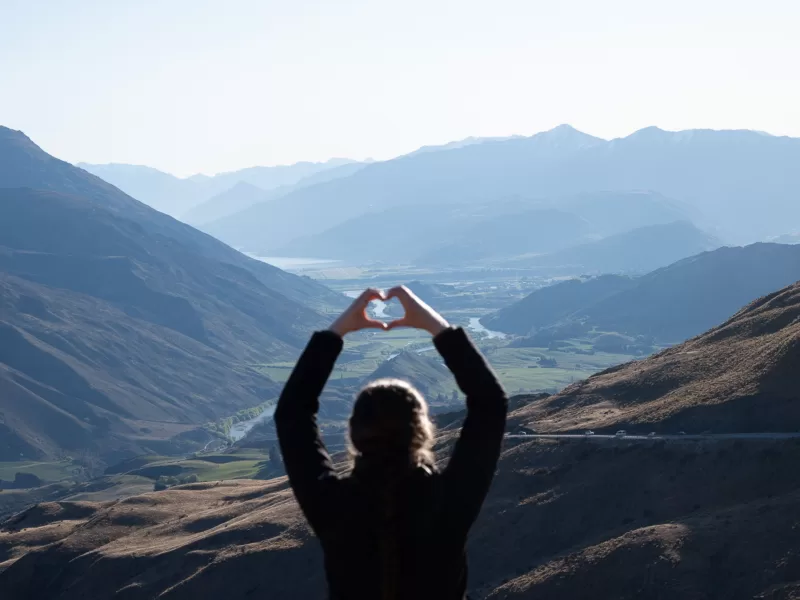
Now we aren't saying we want to be lifetime friends with every person we meet on the trail, but can we try to treat every person we meet on the trail like a friend? Or even just a work acquaintance. When someone nods, smiles, says hello, please say it back. It's just a quick way to acknowledge each other, and it's really nice when that smile and hello is returned.
If you are hiking in a country that speaks a language different to your own, learn how to say hello in that language so you can reciprocate when others say it to you. It's important to learn this regardless of if you are hiking and is a key part of being a conscious traveller. For more traveller specific tips, our conscious traveller post is here.
Another way to show respect to other hikers on the trail is to move to one side of the trail when passing each other. If the trail is small, it becomes a bit of a dance to find a spot to get out of the way, but it's important to help each other out.
If you are in a big group, this is a key point to remember, as you may need to walk single file to let others get past. Don't be those people who walk along the entire width of the trail, forcing others off the trail as you go. This is bad for the environment and disrespectful to your fellow hikers.
Leave No Trace
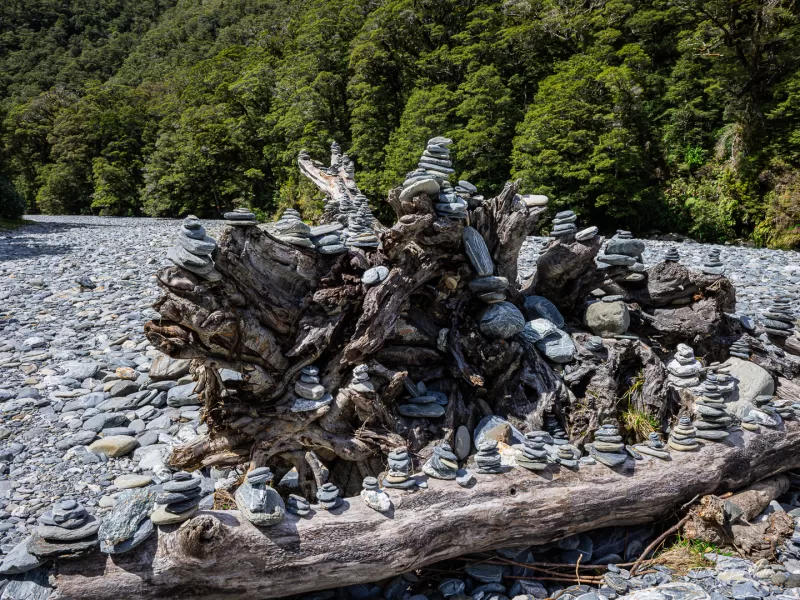
We have all heard of the saying 'take nothing but photos, leave nothing but footprints'. Well, as it turns out, you'd like to reduce where you leave those footprints too. Sticking to the trail is really important to keep the area you are walking through free of damage and to protect plants from any diseases that may be attached to your boots.
Even just walking slightly off the side of the trail if it's muddy is bad, as it ends up widening the trail and eroding the land. This is called trail braiding and is a big problem for the entire ecosystem.
Leave no trace is so important. Anything we do in nature has an effect on the habitat there. Picking up sticks or flowers, moving rocks and wandering off the trail all have negative impacts. That's why, whilst they may look good, stacking rocks is something we need to move away from.
We wrote a whole blog post on it here. But the main point is it destroys the ecosystem, so please leave the rocks alone. When we say leave no trace, we really, really mean it!
Don't Be A Litter Bug
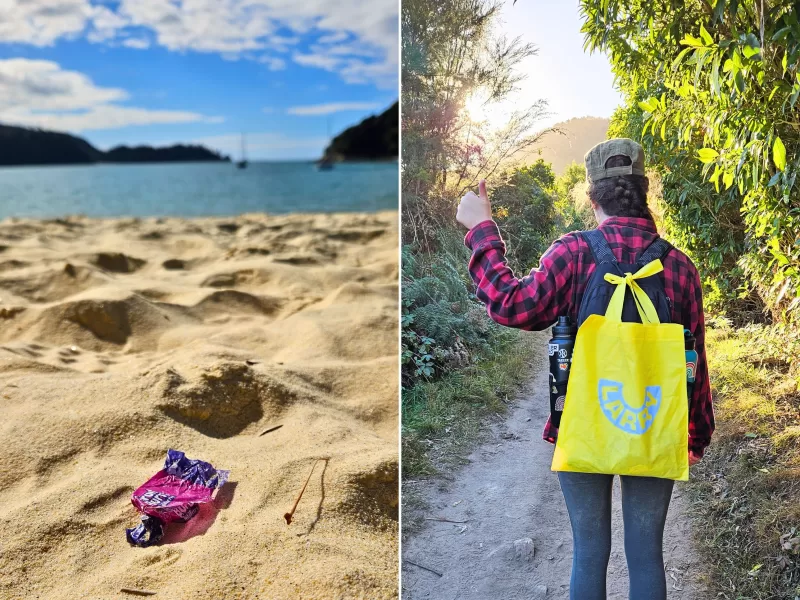
If you take it in, then you take it out. Simple right? Yet we still find ourselves picking up other people's trash on hikes. We want these places to stay pristine and be there for future generations, so we need to look after them as best we can. Simple really.
Don't be a litterbug, be a tidy kiwi, keep it, bin it, keep Australia beautiful. There are many more worldwide campaigns with catchy sayings about not littering. If these don't convince you, I'm sure you can find more ways of saying it. Let's just not litter ok?
If that's not enough of a message for you, then there is a way to make sure you can't litter! Don't take anything in with you that you would want to throw away. Pack food that doesn't come in single use plastic, use your own containers or bees wax wraps for snacks that need protecting.
If you aren't a fan of carrying around apple cores or banana skins, get rid of these before you hit the trail by cutting your fruit up and putting it in something reusable. For more on how to pack for an eco-conscious hike, check out our blog post here.
Clean Your Gear!
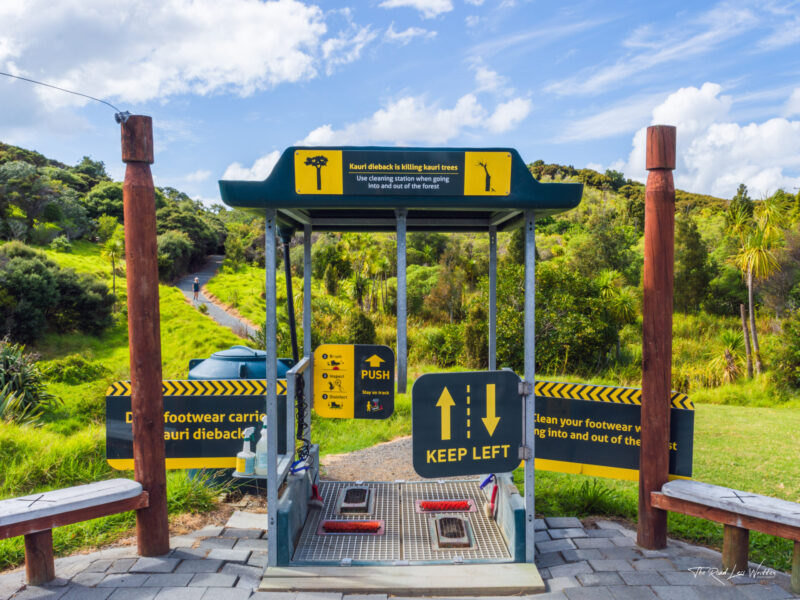
This one is super important, especially in native forests. Make sure all your gear is free of any soil or seeds before starting a hike. This means clothes, shoes, hiking poles, your pack, everything! Dirty gear can carry diseases, pests and invasive plant species.
In Aotearoa, dieback disease is threatening native Kauri trees. The disease can be carried in just a pin head sized piece of dirt. Cleaning your gear is imperative at keeping Kauri trees safe.
If you come across one of these cleaning stations (pictured above) when starting or finishing your hike, make sure to use them. Even if you cleaned your hiking shoes before getting there (and especially if you didn't) they remove any dangerous bacteria like Dieback that could literally kill the trees and plants you have come here to enjoy.
Know Whose Land You're On
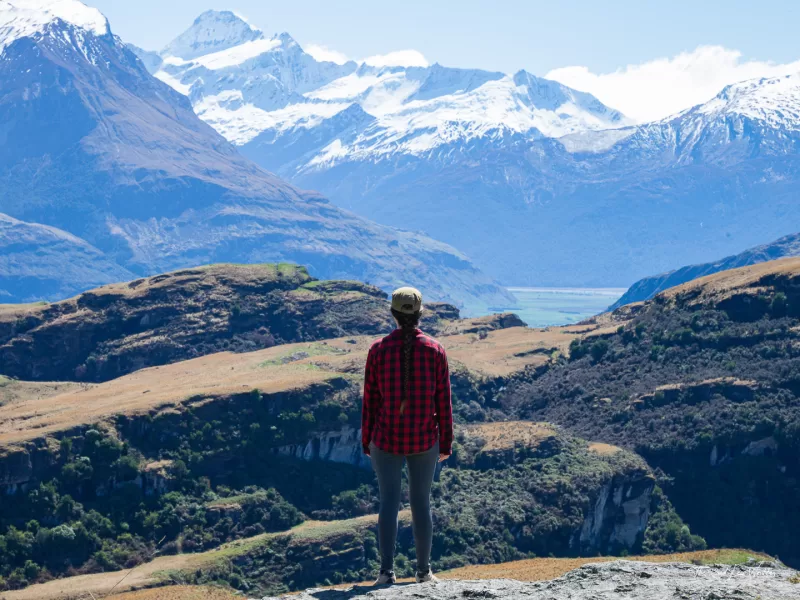
It's hard to be a conscious traveller without knowing who's land you are on. It's even harder to be a conscious hiker without this knowledge. Sometimes it is hard to find this information, but it is crucial that we do our very best to seek it out. We are currently hiking around Aotearoa, so we will use this as an example.
We know that Aotearoa is Māori land, however your knowledge needs to go much deeper than this, find out the local iwi (tribe) to know exactly whose land you are on. From there, you should be able to find out what parts of the land are Tāpu (sacred) and how to properly respect them.
For example, mountains and especially mountain tops are Tāpu and we are asked not to summit them out of respect. It doesn't mean you can't hike along the mountains, but it does mean you need to show respect to the Mountain and not stand on the summit. The same goes for some lakes on these mountains, especially those you will encounter on the Tongariro crossing or the Tama Lakes hike. We are asked to respect these waters by not swimming in them.
If you don't do a little research before you go, you may not realise this and end up disrespecting the area you are privileged to be welcomed to. Having said that, there are often (but not always) signs informing you of what not to do in Tāpu areas, so read the signs and do as they ask.
See? It's Easy to be an Eco-Conscious Hiker!
It's actually not that hard to be a conscious hiker. A few little considerations and preparations go a long way to making your time on the trail enjoyable for you, other people and the environment you are hiking through. Hopefully not all of these tips were new to you, but if they were that's ok! We all have to start somewhere.
Let's be the change we want to see and go from there. Happy hiking along The Road Less Written, we hope to see you out there enjoying the view for years to come.
Keen for more inspo? Be sure to check out:
- 10 Eco-Conscious Vanlife Tips for a Greener Journey
- Margaret River Caves Complete Guide
- The Perfect Day Trip in Margaret River For Non Drinkers!
